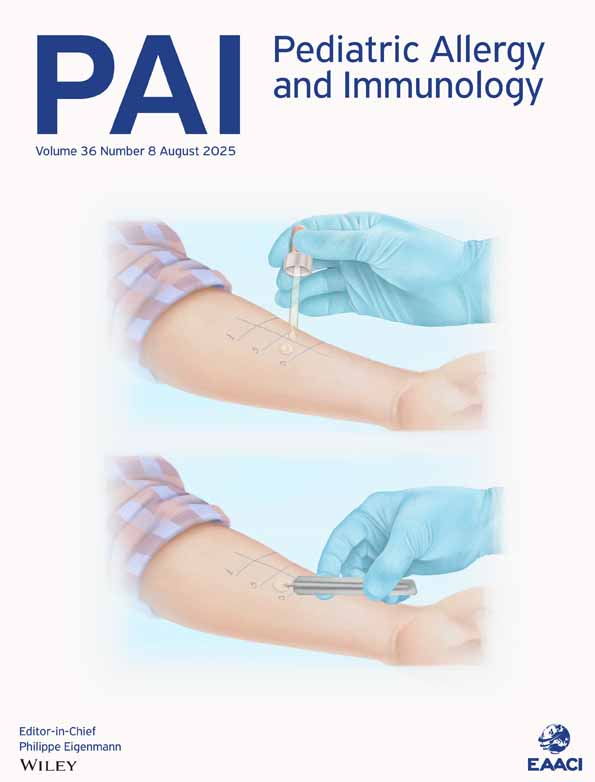Effect of montelukast on exhaled NO in asthmatic children exposed to relevant allergens
Abstract
The level of exhaled nitric oxide (FENO) is increased in house dust mite (HDM)-sensitized asthmatic children after exposure to HDM antigen, and inhaled steroids can prevent this increase. The aim of this study was to evaluate whether montelukast could prevent an increase in FENO levels in allergic asthmatic children after a brief period of exposure to relevant allergens. Sixteen children were evaluated at the residential house ‘Istituto Pio XII’ (Misurina, Bellunio, Italy) in the Italian Alps, a dust mite-free environment. FENO levels were evaluated before (t0) and immediately after (t1) the children were exposed to HDM allergens for 2 weeks in their homes at sea level. No significant difference in FENO was observed in the fluticasone-treated group of children after 2 weeks at sea level. In the group treated with montelukast, an increase in FENO was observed between t0 and t1, which failed to reach statistical significance. These preliminary data suggest that oral montelukast could be effective in preventing the relapse in airway inflammation in allergic asthmatic children who are occasionally exposed to relevant allergens for a short period of time.




